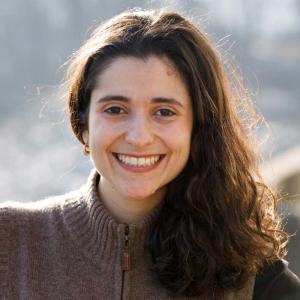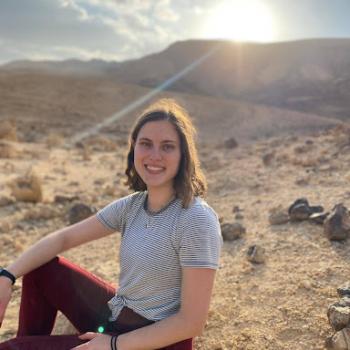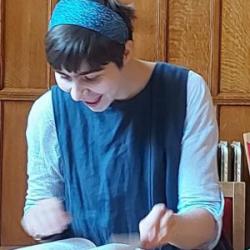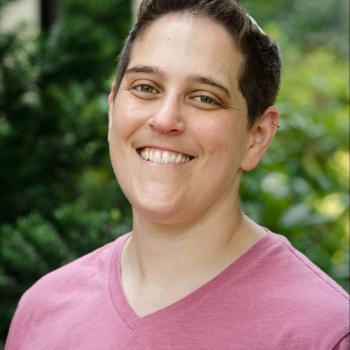 Parashat Noach (Genesis 6:9-11:32)
Parashat Noach (Genesis 6:9-11:32)
Noah is a man of little faith. This is what Rashi, the great commentator on the Torah, tells us. This sets the bar pretty high. If Noah — who builds the ark and gathers all of the animals at God’s request — is not a man of great faith, what could faith possibly look like? Rashi makes this claim at the very moment that Noah enters the ark. In chapter seven verse 7, we are told that Noah and his family enter the ark “מפני מי המבול- because of the flood waters.” Rashi lingers on the word “because.” Noah shouldn’t be boarding the ark because of the falling rain pooling at his ankles, maybe even his knees. He should have entered the ark “because God said so.” If Noah had really believed, if he were a man of greater faith, Rashi implies, he would already be inside the ark when the rain begins.
And so Rashi tells us:
מפני מי המבול“ אַף נֹחַ מִקְּטַנֵּי אֲמָנָה הָיָה, מַאֲמִין וְאֵינוֹ מַאֲמִין שֶׁיָבֹא הַמַבּוּל, וְלֹא”
:נִכְנַס לַתֵּיבָה עַד שְׁדְּחָקוּהוּ הַמָּיִם
BECAUSE OF THE FLOOD WATERS Noah, also, was of little faith: he believed and did not believe that the Flood would come, and he would not enter the Ark until the waters forced him to.
This is a radical rethinking of the idea of faith. We usually think of faith as believing in something positive. “Have faith” and “Don’t stop believing” are meant to be words of encouragement. We invoke the language of “complete faith” when we dream about the coming of a messiah. Rashi presents us with an entirely different definition of faith. Here, emunah — faith, is not about believing that salvation is on its way, but quite the opposite. Sometimes faith is believing that the worst is coming. This is an altogether different and maybe even more challenging kind of faith. For Noah, faith means really believing that God is about to destroy the entire world through flood waters.
This time last year the UN report on global climate change was published, and we were presented with a choice — to read or not to read, to believe what we read or to willfully reject it. It is the same choice we have faced with regard to climate change for years now, and it is an impossible choice. How can we fully believe something so dire and scary? It is a prediction of doom. The reality of climate change is not new. It is well-documented. We are not relying on the word of God, but on science and facts. And yet, even this irrefutable science is hard to believe. Is it ever really possible to believe that the destruction of our world is imminent?
When full faith is too frightening and denial is off the table, Rashi offers us a third way: holding the paradox. Noah was able to to both “believe” and “not believe” simultaneously. Which part of Noah is the part that was able to build the ark — the part of himself that believed the flood would really come? Or maybe it was the part that didn’t believe that allowed him to build? Maybe pure belief, emunah shelemah, would have been too overwhelming and debilitating? Was the disposition that allowed Noah to work, day after day, building an ark some magic combination of belief and disbelief?
Like Noah, we face a scary forecast for our world. Also like Noah, we must find a way to act. We are called to “build the ark” — to take drastic and immediate action to prepare for what lies ahead. It seems impossible. But having read the details of this parsha, the construction of that ark must have seemed pretty impossible too.
Greta Thunberg, the young climate activist from Sweden, was asked to identify the biggest difference between the way we talk about the environmental crisis in America versus in her home country. Without hesitation she answered, “In America you use language of belief — it is something you do or do not believe is happening — in Sweden, it’s just a fact.”
She is, of course, right. Climate change is a fact. But we are not all as brave as Greta, who is ready to face this head on. The language of belief offers us a place to hide from what is true. Like Noah, many of us are not quite ready to admit what is coming. We must each find the balance between hope and fear, between belief and disbelief, that will allow us the strength and courage to move forward.
Rabbi Avi Killip serves as Vice President of Strategy and Programs at Hadar. She was ordained in 2014 from Hebrew College’s pluralistic Rabbinical School in Boston, MA.
















